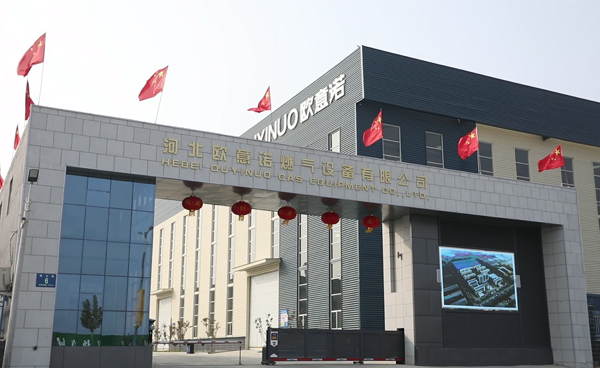
Dec . 24, 2024 03:20
Back to list
natural gas filter separator
Understanding Natural Gas Filter Separators
Natural gas filter separators play a crucial role in the oil and gas industry, ensuring the delivery of clean and dry gas for various applications. These systems are designed to handle the separation of liquids, particulates, and other contaminants from natural gas, thereby enhancing the quality of the produced gas.
What is a Natural Gas Filter Separator?
A natural gas filter separator is a type of equipment that combines the functions of filtering and separating. Its primary purpose is to remove impurities such as water, oil, and solid particles from the natural gas stream before it enters the pipeline or processing unit. The filtration aspect helps in preventing damage to other downstream equipment and maintaining operational efficiency.
The Components of a Filter Separator
The typical design of a natural gas filter separator consists of several key components
1. Inlet Section This is where the incoming gas stream enters the separator. The design often incorporates diffusers or baffle plates to reduce the velocity of the gas, enabling more efficient separation.
2. Filter Elements These are specialized media that capture solid particles and liquid droplets from the gas stream. Filters can be made from various materials depending on the nature of the contaminants and the specific requirements of the separation process.
3. Separator Chamber This is the main body of the filter separator where the gas and liquid phases are allowed to separate. The separator chamber usually features internal devices that promote phase separation by increasing the residence time of the fluids.
4. Outlet Sections After separation, the clean natural gas exits through one port, while the separated liquids drain through another. The outlet design is crucial for ensuring that the maximum amount of liquids is removed without entraining gas.
5. Fluid Discharge A proper mechanism (such as a valve or an automatic drain) is essential to allow the separated liquids to be expelled from the system efficiently.
natural gas filter separator

Importance of Natural Gas Filter Separators
The significance of filter separators cannot be overstated. They are integral to ensuring the reliability and efficiency of natural gas processing facilities. Key benefits include
- Protection of Equipment By removing contaminants, filter separators prolong the life of compressors, turbines, and other essential equipment. Clean gas reduces wear and tear and minimizes maintenance costs.
- Quality Assurance Natural gas must meet specific quality standards before it can be transported via pipelines. The separation of liquids and solids ensures that the gas meets these specifications, preventing issues such as corrosion and hydrate formation downstream.
- Operational Efficiency By ensuring the removal of undesirable components, filter separators optimize the entire gas processing operation, leading to increased throughput and energy efficiency.
Challenges and Maintenance
While natural gas filter separators are essential, they do present certain challenges. The accumulation of liquids and solids within the separator requires regular monitoring and maintenance. Operators need to develop a maintenance schedule to clean or replace filter elements as they become saturated with contaminants.
Additionally, the selection of the right filter separator for a given application is critical. Factors such as gas composition, flow rates, and the expected levels of contaminants must be considered to ensure optimal performance.
Conclusion
Natural gas filter separators are vital components in the processing of natural gas, ensuring that the final product is clean and suitable for use. By understanding their function, components, and importance, industry professionals can better appreciate their role in the efficient and safe operation of gas processing facilities. As the demand for natural gas continues to grow, the technology and design of filter separators will also have to evolve to meet new challenges in the industry. Proper maintenance and the selection of appropriate equipment will ensure reliable service and support the sustainable development of the energy sector.
Latest news
-
Safety Valve Spring-Loaded Design Overpressure ProtectionNewsJul.25,2025
-
Precision Voltage Regulator AC5 Accuracy Grade PerformanceNewsJul.25,2025
-
Natural Gas Pressure Regulating Skid Industrial Pipeline ApplicationsNewsJul.25,2025
-
Natural Gas Filter Stainless Steel Mesh Element DesignNewsJul.25,2025
-
Gas Pressure Regulator Valve Direct-Acting Spring-Loaded DesignNewsJul.25,2025
-
Decompression Equipment Multi-Stage Heat Exchange System DesignNewsJul.25,2025

